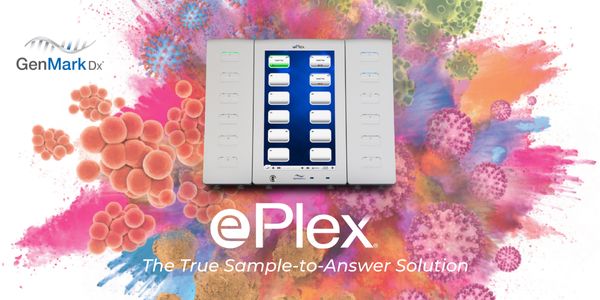Gene Synthesis
Gene Synthesis: sometimes known as DNA printing[1] is a method in synthetic biology that is used to create artificial genes in the laboratory. Currently based on solid-phase DNA synthesis, it differs from molecular cloning and polymerase chain reaction (PCR) in that the user does not have to begin with preexisting DNA sequences. The method has been used to generate functional bacterial or yeast chromosomes containing approximately one million base pairs.
-
NOV 10, 2020 | 9:00 AMDATE: November 10, 2020 TIME: 9:00am PT, 12am ET Gene Synthesis ensures fast access to nearly any DNA sequence, regardless its origin or complexity. Its reliability, flexibility and fast tur...OCT 08, 2020 | 7:00 AMDATE: October 8, 2020 TIME: 7:00am PDT, 10:00am EDT, 4:00pm CEST How often do you pipette in your cell culture lab every day? Usually, we do it so often that we tend stop thinking about ho...Genome editing with an expanded CRISPR-Cas tool set increases the opportunity to make intentional, targeted changes in the genome. Furthermore, improved specificity of genome editing and abi...
Cas9 based therapeutics have the potential to revolutionize the treatment of genetic diseases. However, safe and effective methods for delivering Cas9 protein, gRNA and donor DNA need to be...
SEP 03, 2020 | 9:00 AM
DATE: September 3, 2020 TIME: 09:00am PT, 12:00pm ET xxx Learning Objectives: xxx Webinars will be available for unlimited on-demand viewing after live event. LabRoots is approved as a provi...
JUL 22, 2020 | 10:00 AM
DATE: July 23, 2020 TIME: 10:00 am PDT The SARS-CoV-2 pandemic has taken a toll on many sectors of the medical community. As the pandemic took a grip on the laboratory, the need for diagnost...
In his 2018 TED talk “How to build synthetic DNA and send it across the internet,” Dr. Dan Gibson highlighted a unique synthetic biology approach for fighting pandemics such as S...
Speaker:
Dan Gibson, PhD
, Krishna Kannan, PhD
, Katie Lyons, MS
Many questions at the forefront of biology depend on the interactions of millions of single cells. My lab develops technologies for studying large numbers of single cells. In this talk, I wi...
Speaker:
Adam Abate, PhD
CRISPR-Cas9 gene editing is a powerful technique that enables genetic modification with greater speed and accuracy than previous approaches. In this webinar, Dr. Chen highlights the advantag...
JAN 23, 2020 | 9:00 AM
DATE: January 23, 2020 TIME: 9:00am PST, 12:00pm EST...
DEC 11, 2019 | 7:00 AM
DATE: December 11, 2019TIME: 7:00am PST, 10:00am EST An important part of the biopharma industry, Plasmid DNA is used as a gene-delivery vehicle for DNA vaccination and as a key...
DEC 04, 2019 | 7:00 AM
DATE: December 4, 2019TIME: 7:00am PST, 10:00am EST, 4:00pm CET Do you know how it feels when you just quickly want to redo an experiment that your colleague did, or an experim...
NOV 18, 2019 | 7:00 AM
DATE: November 18, 2019TIME: 7:00am PST, 11:00am EST, 4:00pm CEWT How often do you pipette in your cell culture lab every day? Usually, we do it so often that we tend stop th...
SEP 12, 2019 | 10:00 AM
DATE: September 12, 2019TIME: 10:00am PDT, 1:00pm EDT...
SEP 05, 2019 | 7:00 AM
DATE: September 5, 2019TIME: 7:00am PT, 10:00am ET, 4:00pm CEST PCR (Polymerase Chain Reaction) has gone through a massive evolution since its development in 1983. Besides it...
JUN 05, 2019 | 5:00 PM
DATE: June 5, 2019TIME: 8:00am PDT, 11:00am EDT, 5:00pm CEST Eukaryotic cell cultures respond to the most subtle influence. Apart from the risk of contamination, minimal chan...
MAY 23, 2019 | 9:00 AM
DATE: May 23, 2019TIME: 9:00am PDT, 12:00pm EDT Although mesenchymal stem/stromal cells (MSCs) chondrogenic differentiation has been thoroughly investigated...
MAY 16, 2019 | 4:00 PM
DATE: May 16, 2019TIME: 7:00am PDT, 10:00am EDT, 4:00pm CEST The emergence of NGS is revolutionizing the microbiological sciences and transforming medicine. Deep sequencing has...
In 2014, the Undiagnosed Diseases Network (UDN), which is funded by the NIH, was established as a network of seven clinical sites, two sequencing cores, and a coordinating center. Later, a ce...
Screening to identify all known viruses and other pathogenic microorganisms including bacteria, fungus and parasites in human tumor tissues will provide a more comprehensive understanding of...
Speaker:
Erle Robertson, PhD
Real-time PCR, or quantitative qPCR, is a commonly used molecular biology lab technique to determine the actual amount of PCR product at a given cycle. For quantitative reverse transcription...
Speaker:
Gillian Browne, PhD























